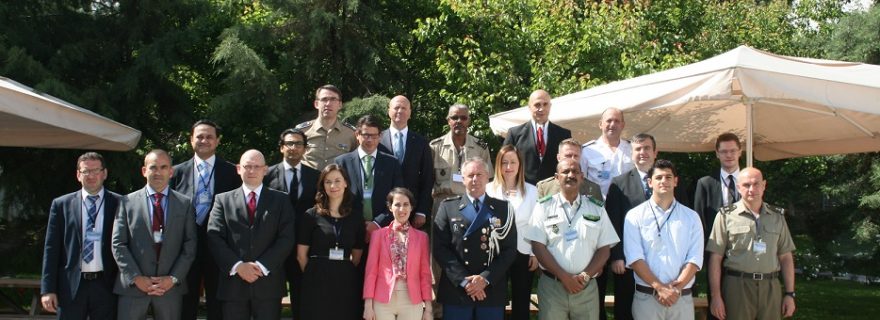Meeting at NATO’s COE-DAT on Foreign Fighters: push and pull factors
NATO's Centre for Excellence on Defence against Terrorism in Ankara organised an expert meeting on foreign fighters in June 2015 called "Homegrown Terrorism: causes and dimensions". What were the main conclusions?
COE-DAT stands for the Centre of Excellence on Defence Against Terrorism, which is based in Ankara. It is the place where NATO organises training and courses on this particular threat to security. It also regularly organises workshops and expert meetings. Its June 2015 expert meeting on “Homegrown Terrorism: causes and dimensions” primarily focused on the phenomenon of foreign fighters and ways to prevent radicalisation and foster de-radicalisation. From the presentations by practitioners and academics from Germany, the UK, France, Macedonia, Turkey and the Netherlands it quickly became clear that many of the experts had quite different views on the size and nature of the problem. Is it a security threat or is it mainly a social and political challenge? Is it a problem of vulnerable individuals or inequality and discrimination in society? Different answers to these questions apparently have led to different approaches and concrete policies.
From the presentations and discussions it was clear that in the various countries, the phenomenon of foreign fighters plays out differently. The main value of the expert meeting was perhaps exchanging the many different experiences and views how to deal with them. There were, however, also a number of issues and ideas regarding foreign fighters that we see in all European countries. Perhaps the most important one is the idea that there is no typical homegrown (jihadist) terrorist but that there are reoccurring patterns. They relate to the motivations of those that went to Syria or Iraq. These motivations can be divided into push and pull factors. Often mentioned pull factors include the possibility to do something good – to defend Muslims that are under attack, and the possibility to serve god and have the opportunity to fulfill the, perceived, requirement to go on jihad. To others, it is also the pull factor of comradeship, fighting with your friends and your ‘brothers’. Closely linked to this is the pull factor of adventure, the appeal of weapons and the possibility of fame and raising one’s status. Finally, to some, joining the violent jihad provides the opportunity to die for a good cause and be accepted by God in heaven with all the perks that, they believe, come with that. The most often mentioned push factors were personal problems including mental health problems, identity problems and trouble in the family. Another set of push factors are related to the position of some Muslim youngsters in Western societies and problems related to social exclusion, in particular the political climate and the “Suspect community paradigm” Muslims are confronted with.
To some of the experts, the push factors were considered more important in explaining the phenomenon of foreign fighters, to others it were the pull factors. The push factor that was mentioned most often was personal problems, especially identity problems. This factor is linked to several of the pull factors, and perhaps this should be the main focus of policy making. But what to do about these personal problems and the appeal of joining the fight in Syria and Iraq to ‘solve’ these problems? This question remained more or less unanswered. There was some level of agreement that education can or should play an important role and that mental health workers should be trained to recognise and report possible cases of radicalisation. Another important observation was that the war in Syria and Iraq will probably will continue to be an important pull factor and continue to attract foreign fighters from Europe and the rest of the world. Unfortunately, there is no sign the fighting in these two countries will stop soon, nor that we find answers to effectively deal with homegrown jihadi foreign fighters.


